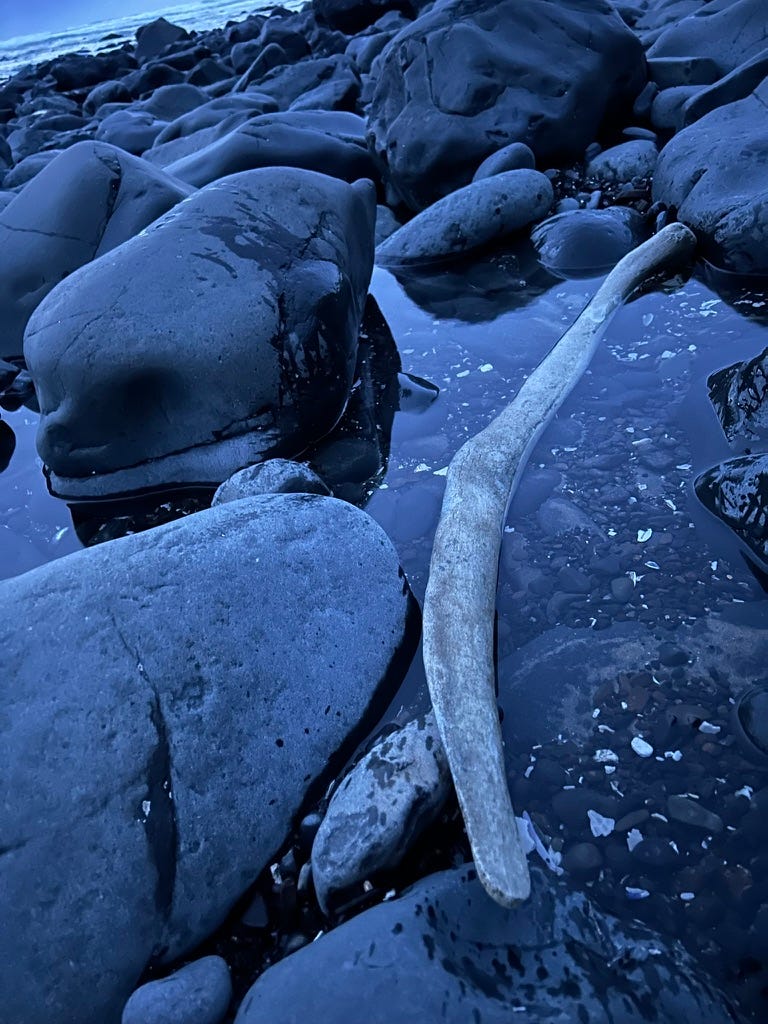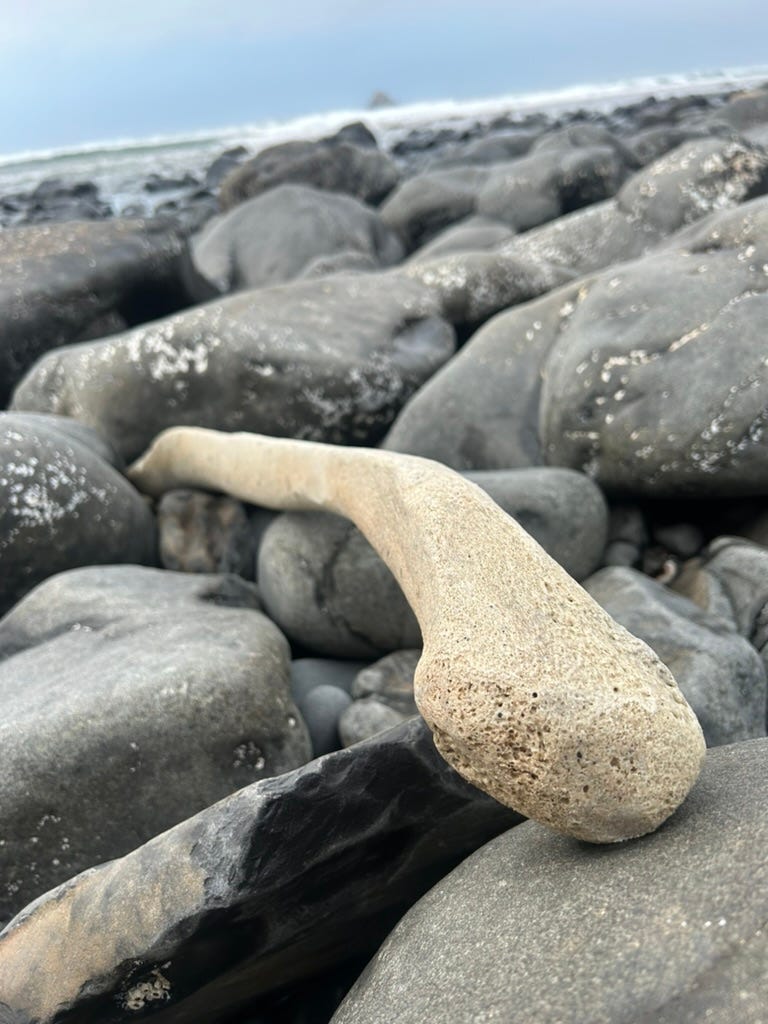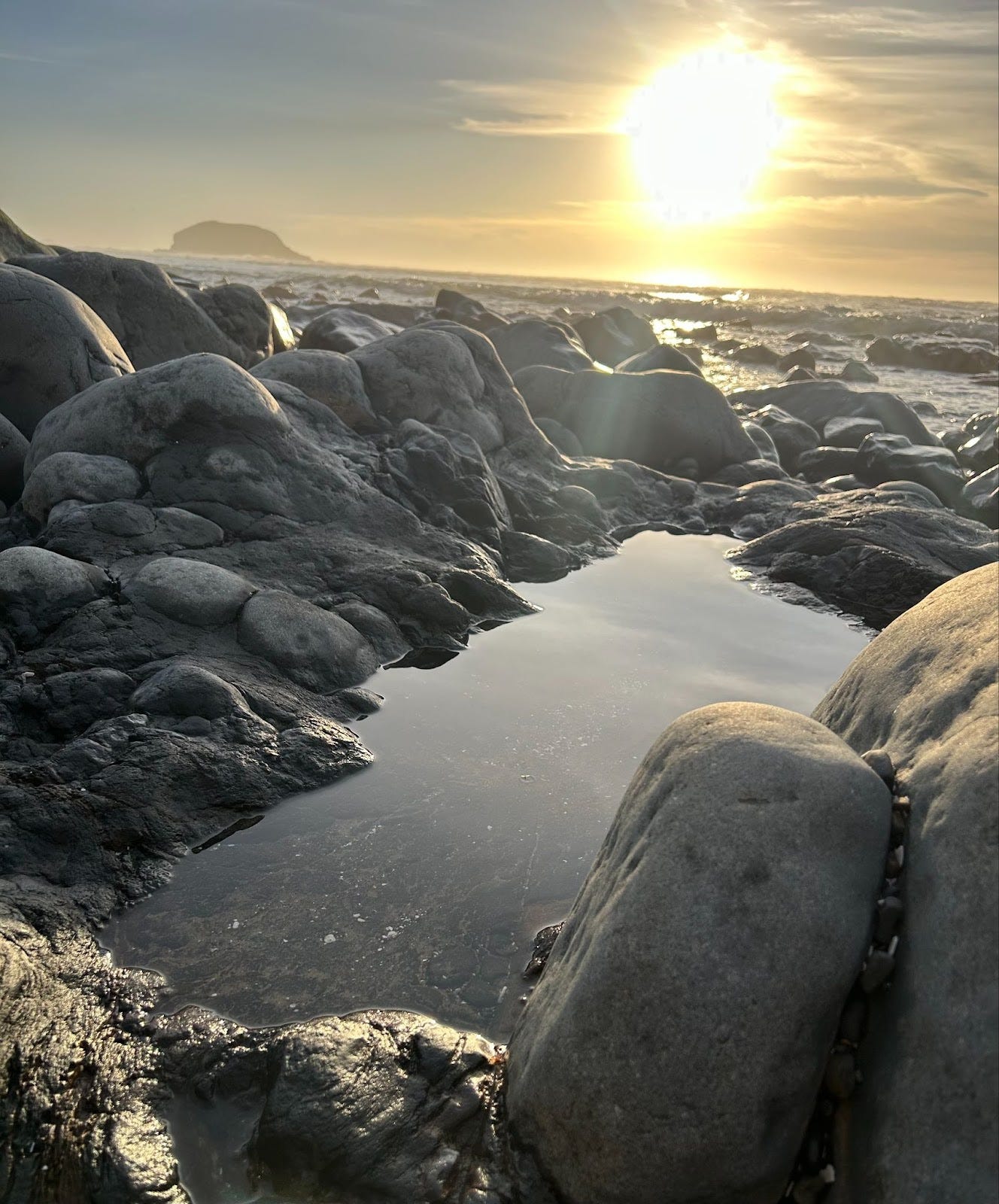Yesterday’s walk. The Oregon coast, wild, booming. Water rising, swooshing fast and hard against barnacled rocks, then slipping back into itself. Rise, fall, rise, fall–the breath of the sea, the voice of the tide.
Last year on this same empty cove, I found two whale rib bones. The first one was floating in a shallow tidepool. Twilight turned it the color of a blue moon. I picked it up, curious about its heft. Wondering, I admit, if I could manage carrying it over slippery boulders while dodging the incoming tide. It took less than five seconds before I laid the bone back in its tidepool. It belonged to the sea. I had no business taking it anywhere.
The next day, I found the second bone: cream-colored and porous in the afternoon sun, slim tapered curve lodged between two boulders. I sat next to the bone and reached down to touch it, rough and cold. I sat until the cold crept through my wool coat and my own bones felt stiff.
Last winter, I tried writing about my whale bone experience for a Scrap Heap post, but I couldn’t yet make sense of what I’d felt picking up something that so clearly said to me not for you. Even now, I’m still trying to understand it.
All week, I’ve climbed over boulders, waded through tidepools, looking for the whale bones. At first, I thought, who took them? What if they’re sitting in someone’s backyard? Then I thought, the sea took them back. They’d returned home. Then I hoped maybe they were buried under stones and small boulders during winter storms. I thought: they could be under my feet right now. I like imagining them safely tucked into the earth. Maybe that is because over the last several weeks, I’ve wanted to tuck myself and all my loved ones safely away from the onslaught that is coming fast.
It feels compulsive, this need to find the bones again. I can’t walk through the cove without searching for them. I know they must be gone, but some part of me thinks that if I can sit with them again, lay my hands on the solid proof of their existence, and just listen, maybe I’ll pick up a clue for how to be in the world right now. Not because I think the bones hold any answers, nor do I think they speak using the kind of language you and I share, but because whatever I tapped into that watery blue evening one year ago today, that part of me that said no–put this down, this is the part of me I need to stay connected with right now.
My friend, Sonja, calls this the still, small voice. Curious about where this concept came from, I googled still small voice and discovered it was used in a story in the Christian bible: Elijah is feeling hopeless and returns to the mountains where God revealed himself to Moses hoping for some kind of similar, spectacularly glorious revelation, but no. God comes to him in a still, small voice. I don’t believe there were any gods revealing themselves to me when I held that whalebone, but I do think that I was in the right state of mind to be receptive to my own still, small voice, which is one of the many magics of the sea–it has the ability to return us to ourselves if we can slow ourselves down enough to match its rhythm.
All week, during my tidepool expeditions, I’ve had the chorus to Neko Case’s song “Never Turn Your Back on Mother Earth” (which is also the title of the song) running through my brain. At first it came to me as a literal warning: keep your eyes on the sea, Sarah. But also.
But also.
Never turn your back on Mother
Never turn your back on Mother Earth
Hurricanes, earthquakes, wildfires, snowstorms, heatwaves, floods, droughts. The earth is speaking to us. The sneaker waves have caught us, and we are already roiling in the dark, the riptides' warning unheard.
Never turn your back on Mother
Never turn your back on Mother Earth








Love this and relate to every word.